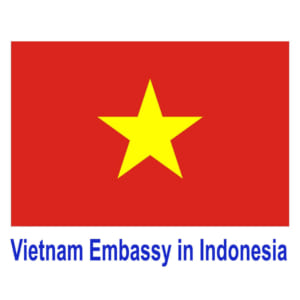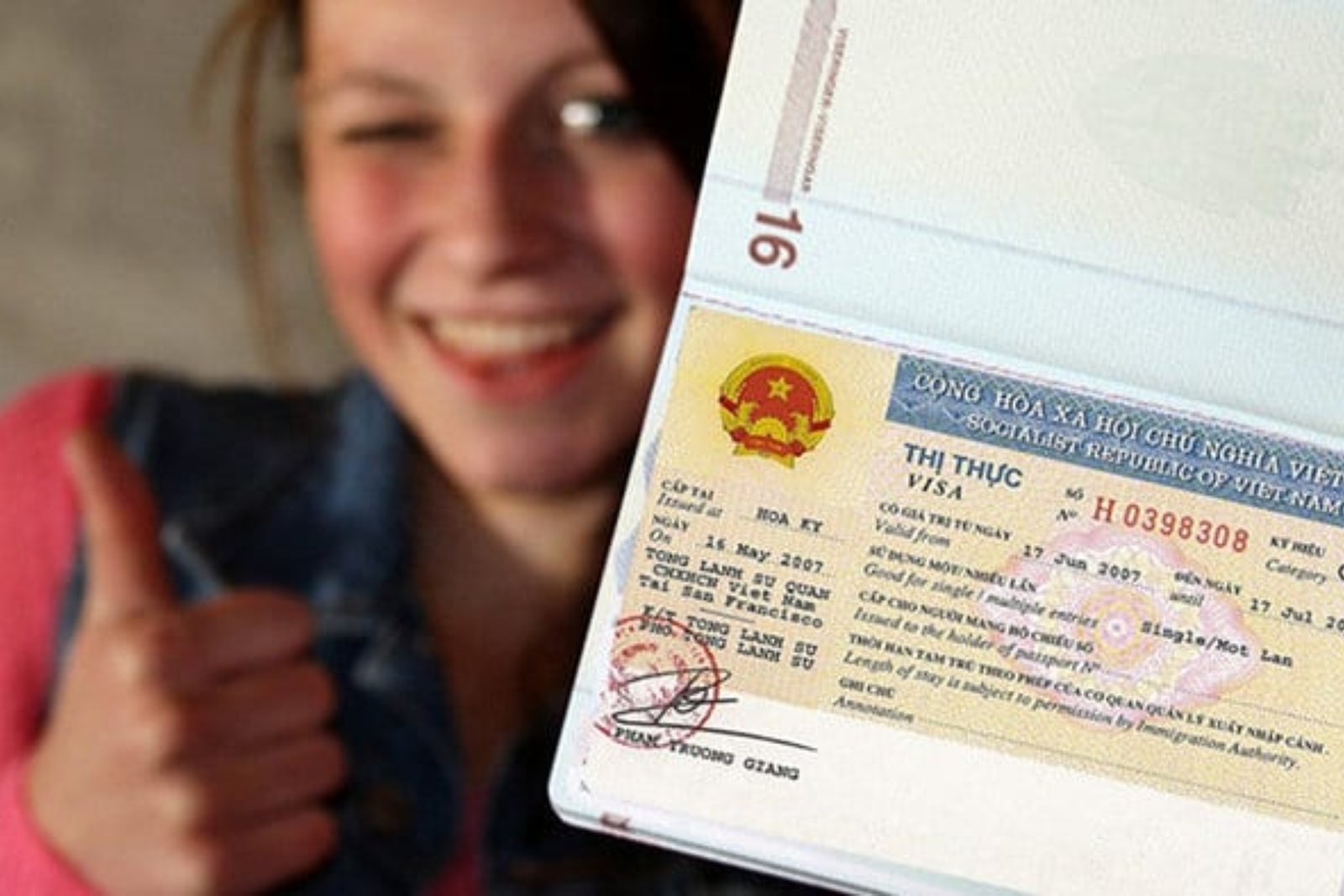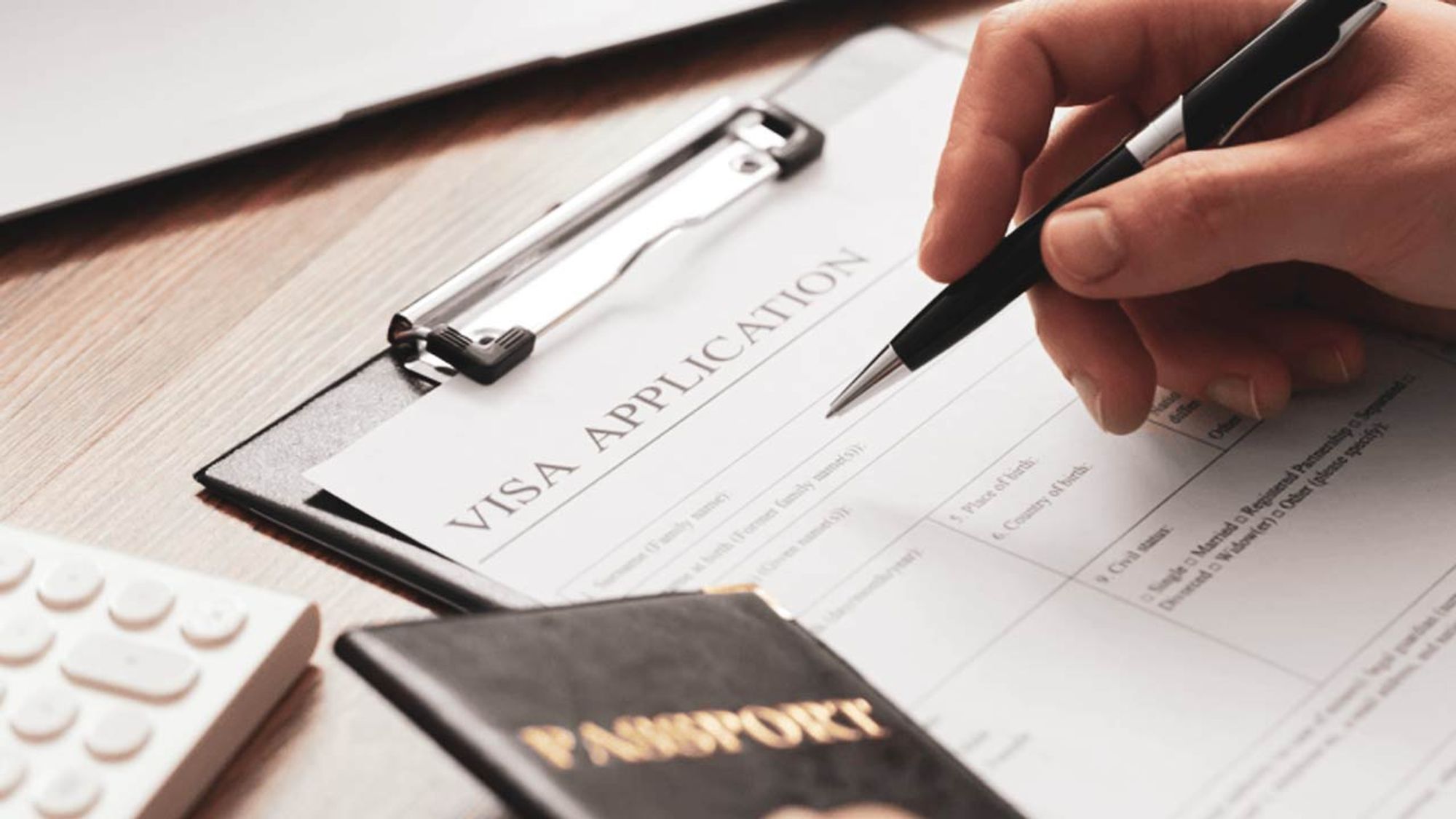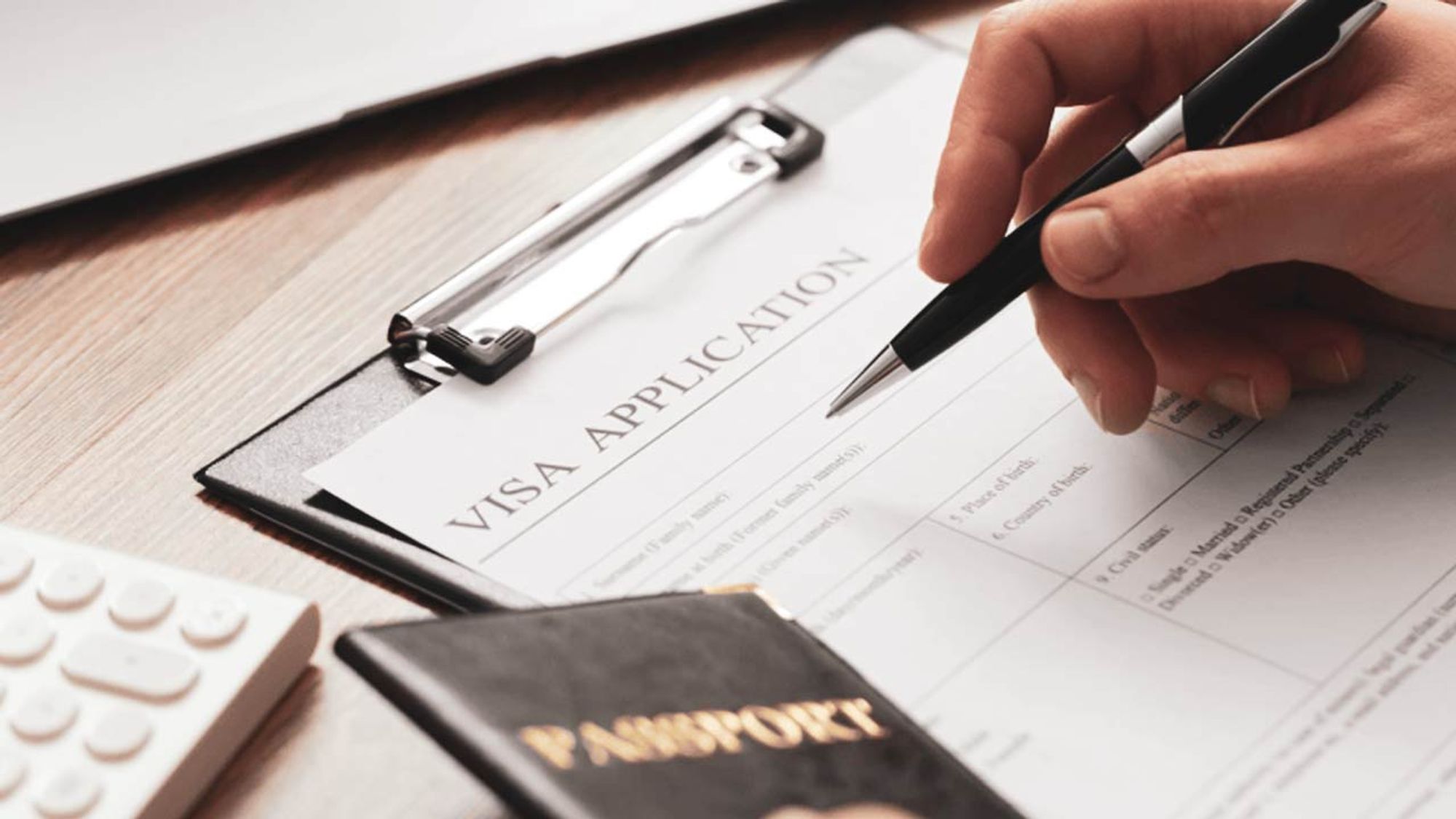
Ultimate Guide to Vietnam Visa from New Zealand
Obtaining a visa for Vietnam from NZ is an essential step for New Zealand citizens planning to visit this vibrant Southeast Asian destination. Whether you’re traveling for tourism, business, or education, understanding the various visa options and processes will help ensure a smooth travel experience.
Understanding the Types of Visas for Vietnam

When it comes to traveling to Vietnam, understanding the different types of visas available is crucial. Each type serves its unique purpose, catering to various travel needs. Knowing these distinctions will guide you in selecting the right visa that aligns with your travel intentions.
Tourist Visa
The tourist visa is one of the most common types of visas issued to foreign travelers visiting Vietnam for leisure. This visa typically allows for stays ranging from 15 to 30 days, depending on the specific terms established by Vietnamese immigration authorities.
To apply for a tourist visa, applicants must provide proof of accommodation and a return flight ticket. Tourists can choose between single-entry and multiple-entry visas, depending on their travel plans. The tourist visa is relatively straightforward to obtain, often allowing for online applications through the e-visa system.
As you plan your trip, consider researching popular tourist destinations in Vietnam, such as Hanoi, Ho Chi Minh City, and Ha Long Bay, to maximize your travel experience while on a tourist visa.
Business Visa
For those traveling to Vietnam for work-related purposes, a business visa is necessary. This visa type caters specifically to individuals attending meetings, conferences, or other professional engagements. Business visas generally allow for longer stays than tourist visas, often extending up to 90 days.
To secure a business visa, applicants may need to provide a letter of invitation from a Vietnamese company or organization detailing the nature of their business activities. It is vital for New Zealand citizens to ensure their documentation is accurate, as discrepancies may result in delays or rejections.
Understanding the intricacies of Vietnam’s business environment can also help enhance your networking opportunities during your stay.
Transit Visa
If you’re passing through Vietnam on your way to another destination, you might need a transit visa. This type of visa is applicable if you intend to leave the airport transit area. A transit visa typically permits stays of up to five days and is especially useful for travelers who have layovers in Vietnam.
It’s important to note that if you plan to remain within the airport’s international zone during your layover, a transit visa may not be required. However, it’s prudent to research specific airline regulations and Vietnamese immigration policies to avoid any issues upon arrival.
Student Visa
International students planning to study in Vietnam should apply for a student visa. This visa type allows for extended stays and typically requires proof of enrollment in a recognized educational institution in Vietnam.
Students must also demonstrate adequate financial resources to support themselves during their studies. The student visa process can be complex, necessitating timely application submission and careful attention to detail to fulfill all requirements mandated by the Vietnamese government.
A rich cultural experience awaits students in Vietnam, providing ample opportunities to immerse in local traditions while pursuing academic goals.
Work Visa
For expatriates seeking employment in Vietnam, obtaining a work visa is mandatory. This visa type usually requires an employment contract with a Vietnamese employer and is subject to strict regulatory frameworks.
Work visas are divided into several categories based on the type of job and the level of expertise required. Applicants must submit a range of documents, including a health certificate and criminal background check, to demonstrate their eligibility for work. Navigating the work visa process can be intricate; thus, many choose to seek assistance from local legal experts specializing in immigration matters.
Diplomatic and Official Visas
In addition to standard visa types, diplomatic and official visas are available for government officials and representatives engaged in formal duties. Such visas adhere to different application procedures and exemptions, emphasizing the importance of understanding the specific requirements before proceeding.
Eligibility Criteria for New Zealand Citizens
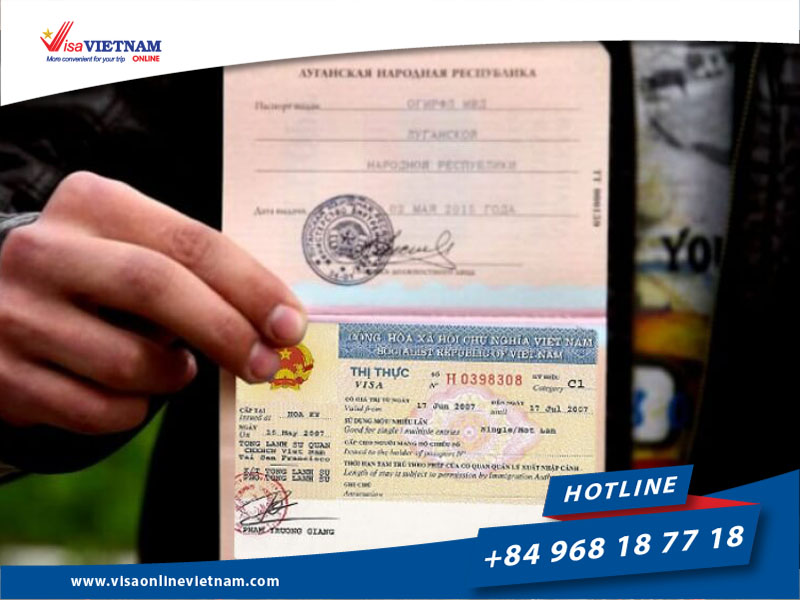
Before embarking on the visa application journey, it is essential to be aware of the eligibility criteria set forth by the Vietnamese government for New Zealand citizens. These criteria vary based on the visa type being sought and can significantly impact the overall application experience.
General Requirements
General eligibility requirements typically include possession of a valid passport, which should remain valid for at least six months beyond the intended departure from Vietnam. Additionally, applicants must provide recent passport-sized photographs that meet specific dimensions and quality standards.
While applying for various visa types, applicants should be prepared to supply personal information, including travel itineraries and reasons for visiting Vietnam. Accurate documentation and adherence to guidelines are crucial in ensuring a seamless application process.
Specific Conditions for Different Visa Types
Each visa type has its own set of conditions that applicants must meet. For instance, tourist visas might require proof of accommodation bookings, whereas business visas necessitate an invitation letter from a Vietnamese entity.
Furthermore, student visas demand evidence of enrollment with educational institutions, while work visas require employment contracts outlining job descriptions and salary agreements. Familiarizing oneself with these specific conditions is vital to ensuring compliance and avoiding potential rejections.
Exemptions and Special Cases
Certain exemptions may apply to specific categories of travelers. For instance, citizens of some countries can enjoy visa-free entry for short stays in Vietnam. However, New Zealand citizens do not currently fall under this exemption.
Special cases may arise, such as humanitarian travel or medical emergencies, where expedited visa processing could be requested. In such instances, demonstrating urgency and providing relevant documentation can significantly improve chances of approval.
How to Apply for a Vietnam Visa from New Zealand
Navigating the visa application process can seem daunting, but understanding the different methods available provides clarity and confidence. New Zealand citizens have several options when applying for a visa for Vietnam from NZ, each with its own advantages and considerations.
Online Visa Application (E-Visa)
One of the simplest ways to obtain a visa for Vietnam is through the online e-visa application system. This method is particularly popular among tourists because it eliminates the need for physical paperwork and waiting in line at embassies.
The e-visa application process involves filling out an online form and submitting it along with digital copies of required documents, such as a passport photo and a scanned image of your passport. After payment is made, applicants receive an e-visa via email, which they must print and present upon arrival in Vietnam.
Since the implementation of the e-visa system, many travelers have found it to be a convenient and efficient option, expediting the process significantly compared to traditional methods.
Visa on Arrival Process
Another alternative for obtaining a visa is the visa on arrival process. This option is ideal for travelers who prefer flexibility. Note that a visa on arrival requires prior obtainment of an approval letter through a designated agency before flying to Vietnam.
Once you arrive at any international airport in Vietnam, you can then present the approval letter along with necessary documents to receive the visa. While this method offers convenience, it is important to engage with reputable agencies to ensure the legitimacy of the approval letter.
Embassy or Consulate Application
Applying for a visa directly at the Vietnamese embassy or consulate is another avenue available to New Zealand citizens. This traditional approach allows for direct communication and personalized assistance throughout the application process.
To initiate this process, applicants should visit the nearest Vietnamese diplomatic mission, complete the necessary forms, and submit accompanying documents. Depending on the selected visa type, processing times may vary, so it’s advisable to prepare ahead of time, especially for business or work visas, which might require additional documentation.
Required Documentation
Regardless of the application method chosen, certain documents are universally required when applying for a Vietnam visa. These typically include:
- A valid passport with at least six months’ validity.
- Completed visa application form.
- Recent passport-sized photographs meeting specified guidelines.
- Supporting documents pertinent to the visa type (such as flight itineraries, hotel bookings, or invitation letters).
Being meticulous about document preparation enhances the likelihood of successful visa approval and minimizes delays.
Application Fees and Payment Methods
Visa application fees can differ based on the type of visa and the application method used. Generally, online applications through the e-visa platform tend to have set prices, making them easier to budget for.
Embassy applications may involve additional service fees, particularly if express processing is requested. Payment methods also vary by application channels, including credit cards, bank transfers, or cash payments at diplomatic missions. Always ensure that you keep receipts and confirmation emails as proof of payment.
Step-by-Step Guide to the Visa Application Process
Successfully navigating the visa application process involves following detailed steps meticulously. Preparing thoroughly can lead to a seamless experience while applying for a visa for Vietnam from NZ.
Preparing Necessary Documents
Before beginning the application, it’s crucial to gather all necessary documents. Start with your passport, ensuring it meets the validity requirements. Next, collect supporting documents based on your visa type.
For tourist visas, having accommodation proof and a travel itinerary is beneficial. Business visas will require an invitation letter. Students must provide acceptance letters from educational institutions. Ensuring accuracy and completeness in documentation avoids unnecessary delays and frustrations later on.
Completing the Application Form
Filling out the visa application form accurately is paramount. Online applications often contain clear instructions, guiding applicants through required fields. Ensure that personal information matches what is recorded in your passport precisely to avoid inconsistencies.
Take your time reviewing the completed form before submission. An incorrect entry might trigger delays or rejections, causing significant inconveniences.
Submitting the Application
Submission methods depend on the chosen application pathway. For e-visas, carefully follow the online submission process, ensuring that all documents are correctly uploaded. When applying at an embassy or consulate, verify operating hours and any appointment requirements before visiting.
For visa on arrival, confirm that you have received your approval letter before heading to the airport. Upon arrival, expect to spend time at the visa-on-arrival counter, where you’ll present your approval letter and relevant documents for verification.
Tracking Application Status
After submitting your application, tracking its status can offer peace of mind. For e-visas, applicants can check their status online using provided reference numbers. Embassy applications may require direct communication with the embassy to inquire about progress.
Patience is key, as processing times vary based on visa type and volume of applications being handled by the respective authority.
Receiving the Visa
Upon approval, applicants will receive their visa via specified channels: an e-visa notification email or a stamped visa obtained upon arrival or from the embassy. Inspect the received visa carefully, ensuring all details, such as dates and names, are correct.
If there are any discrepancies, reach out immediately for rectification to avoid complications during travel.
Visa Validity and Duration of Stay
Understanding visa validity and duration of stay is essential for New Zealand travelers to Vietnam. This knowledge ensures adherence to immigration regulations and aids in planning trips more effectively.
Standard Validity Periods
Visa validity refers to the time frame within which a visa holder must enter Vietnam. Most tourist visas are typically valid for 30 days, while business visas can extend up to 90 days or more, depending on specific circumstances.
New Zealand citizens should pay close attention to the validity period granted on their visa, as overstaying can lead to penalties or future travel restrictions. Proper planning and awareness of visa expiration dates are essential for a hassle-free journey.
Maximum Length of Stay Allowed
The maximum length of stay permitted under different visa types varies greatly. Tourist visas often allow for a stay of up to 30 days, while business visas can permit longer durations based on the nature of employment or assignments.
Transiting through Vietnam may only need a few days, while student visas can last well beyond a year. Always consult specific visa terms when planning your trip to avoid unintentional overstays.
Multiple Entry vs Single Entry Visas
Choosing between a single entry and multiple entry visa depends on individual travel requirements. Single-entry visas allow travelers to enter Vietnam once, while multiple-entry visas facilitate multiple entries and exits within the validity period.
Travelers intending to explore neighboring countries by crossing back into Vietnam might find multiple-entry visas more advantageous. Assessing travel plans and objectives helps ensure the selection of the most suitable visa type.
Important Considerations and Tips
Successful navigation of the visa application process relies on being well-informed and prepared. Here are some important considerations and tips for New Zealand citizens applying for a visa for Vietnam from NZ.
Application Timing and Processing Times
Timing your visa application is critical. Depending on the application method chosen, processing times can vary. E-visas typically take three business days for processing, while embassy applications may require longer periods, sometimes extending up to two weeks or more.
Starting your application well in advance of your planned travel date is wise, accounting for potential delays or complications. This proactive approach minimizes stress and allows for better travel planning.
Accuracy of Information
Providing accurate and honest information within the application is essential. Misrepresentations or inaccuracies can lead to application denial, resulting in wasted time and effort. Double-check all information before submission, aligning with documented proof and ensuring consistency with your passport.
Maintaining transparency in your application builds trust with immigration authorities, enhancing the likelihood of approval.
Photo and Document Specifications
Many visa rejections stem from non-compliance with photo and document specifications. Ensure that passport photos meet official size and quality requirements, following guidelines provided within the application instructions.
Gather all supporting documents early on, paying attention to format, size, and clarity to avoid any last-minute surprises during the application process.
Common Reasons for Visa Rejection
Understanding common reasons for visa rejections can help avoid pitfalls. Frequent causes include discrepancies in personal information, inadequate documentation, and insufficient financial evidence.
Familiarize yourself with rejection factors to preemptively address potential shortcomings in your application. Engaging with reputable agencies for guidance can also mitigate risks associated with missteps in the application process.
Extending or Renewing Your Visa
If you find yourself needing to stay longer than your visa allows, you may be able to apply for an extension or renewal. Typically, extensions can be processed through Vietnamese immigration offices. It’s advisable to start this process well before your current visa expires to avoid overstaying.
Research local regulations regarding extensions, as they can differ based on visa types. Engaging with local legal services may also expedite the process and clarify requirements.
Cost Breakdown and Budgeting for Your Visa
Budgeting for a visa is an important consideration for any traveler. Understanding the cost structure associated with obtaining a visa for Vietnam from NZ enables effective financial planning.
Visa Fees for Different Types
Visa fees vary significantly based on the type of visa applied for and the respective processing channels. Tourist visas usually have lower fees compared to business or work visas, reflecting the complexity of the latter application processes.
E-visa fees are generally fixed, allowing for easier budgeting compared to embassy applications, which may involve variable costs based on processing time and additional service fees.
Additional Charges (Service Fees, Express Processing)
Additional charges may apply when opting for express processing or utilizing visa agencies. While express processing can significantly reduce waiting times, it often incurs supplementary fees.
Agencies may charge service fees based on the convenience they provide, which is worth weighing against the potential time saved in handling the application independently. Transparency regarding costs is vital—always request comprehensive fee breakdowns when engaging services.
Currency and Payment Options
Paying for visa applications typically involves various currency options, especially when dealing with agencies or embassies. Most accept major credit cards, while some may require cash payments.
Be diligent in keeping receipts or transaction confirmations, as they serve as essential proof of payment. Familiarize yourself with payment procedures unique to the chosen application channel to prevent any hiccups during submission.
Travel Restrictions and COVID-19 Protocols
Given recent global events, it’s important to stay informed about travel restrictions and protocols related to COVID-19. Understanding these measures is vital for safe and compliant travel to Vietnam.
Current Travel Restrictions
As borders gradually reopen, travelers must remain mindful of ongoing restrictions and requirements. Regulations can change frequently based on public health guidelines, so checking with official sources before departure is essential.
New Zealand citizens should monitor advice from both the New Zealand and Vietnamese governments regarding entry requirements, including any health declarations or quarantine protocols in place.
Health and Safety Measures
Visitors to Vietnam must adhere to local health and safety measures to ensure personal safety and protect public health. This may include mask mandates, social distancing rules, and hygiene practices in hospitality and public spaces.
Awareness of local guidelines ensures compliance while fostering a safer environment for fellow travelers and residents alike.
Vaccination and Testing Requirements
Depending on emerging trends, vaccination proof and testing requirements may be enforced for entry into Vietnam. Travelers should prepare documentation attesting to their vaccination status and be ready to undergo testing if required.
Staying updated on these evolving requirements and engaging with healthcare providers can ensure that all necessary measures are taken prior to travel.
Conclusion
Navigating the complexities of acquiring a visa for Vietnam from NZ can be challenging but ultimately rewarding. By understanding the various visa types, eligibility criteria, application processes, and costs involved, New Zealand citizens can prepare thoroughly for their adventures in Vietnam. Staying informed about travel restrictions and health protocols remains essential for a smooth and enjoyable trip. Careful planning and adherence to guidelines will pave the way for unforgettable experiences in this beautiful country.

